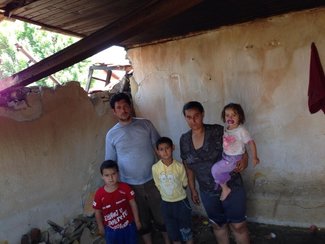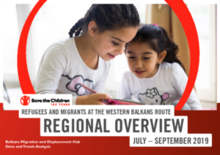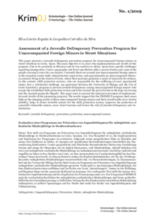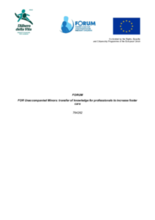

Displaying 231 - 240 of 544
Data and Trend Analysis (DATA) Refugees and Migrants at the Western Balkans Route Regional Overview, covering period July - September 2019, describes key trends in migrations in the region, detailing information about the number of people on the move, demography (age, sex, country of origin, etc), behavioral patterns, and routes in use - with a focus on children, particularly unaccompanied children.
This paper presents a juvenile delinquency prevention program for unaccompanied foreign minors in street situations in Ceuta, Spain. The main objective is to assess the implementation and results of this program.
This article is written as part of the FORUM project (FOR Unaccompanied Minors: transfer of knowledge for professionals to increase foster care), an EU funded project which sought to enhance the capacity of professionals to provide quality foster care for unaccompanied migrant children, primarily through the transfer of knowledge. The article aims to contribute to this transfer of knowledge by bringing together literature which is of relevance to professionals developing or enhancing foster care services for unaccompanied migrant children.
This research poster presents an overview of a study conducted in Northern Italy. The study's aims were to: (1) investgate the associatons among atachment paterns, Emotonal Regulaton (ER) strategies and internalizing or externalizing symptoms showed by adolescents in residental-care and (2) examine the predictve role of atachment and ER strategies for the rates of internalizing/externalizing symptoms.
UNICEF is seeking an international consultant to provide technical support to the Ministry of Labour and Social Policy in strengthening of the foster care system in the country.
This chapter from Asylum Determination in Europe focuses on unaccompanied minors seeking asylum in Greece and their experiences of residing both in shelters and refugee camps.
UNICEF is seeking to recruit a legal expert to be placed in the MoLSS Department for the Protection of Unaccompanied Minors to support the drafting of the required Ministerial Decisions as per Law 4554/2018 (Regulatory framework of Guardianship of unaccompanied children).
UNICEF is seeking to recruit an expert on Guardianship to EKKA to support the operationalization of the new Department on Guardianship.
UNICEF is seeking to recruit a social policy expert to be placed to the MoLSS Department for the Protection of Unaccompanied Minors to support the drafting of SOPs for new care and protection modalities for UASC with a focus on Guardianship and Supported Independent Living (SIL).
UNICEF is seeking to recruit a social policy expert to be placed to the MoLSS Department for the Protection of Unaccompanied Minors to support the drafting of national policies and strategies to strengthen protection for UASC.




